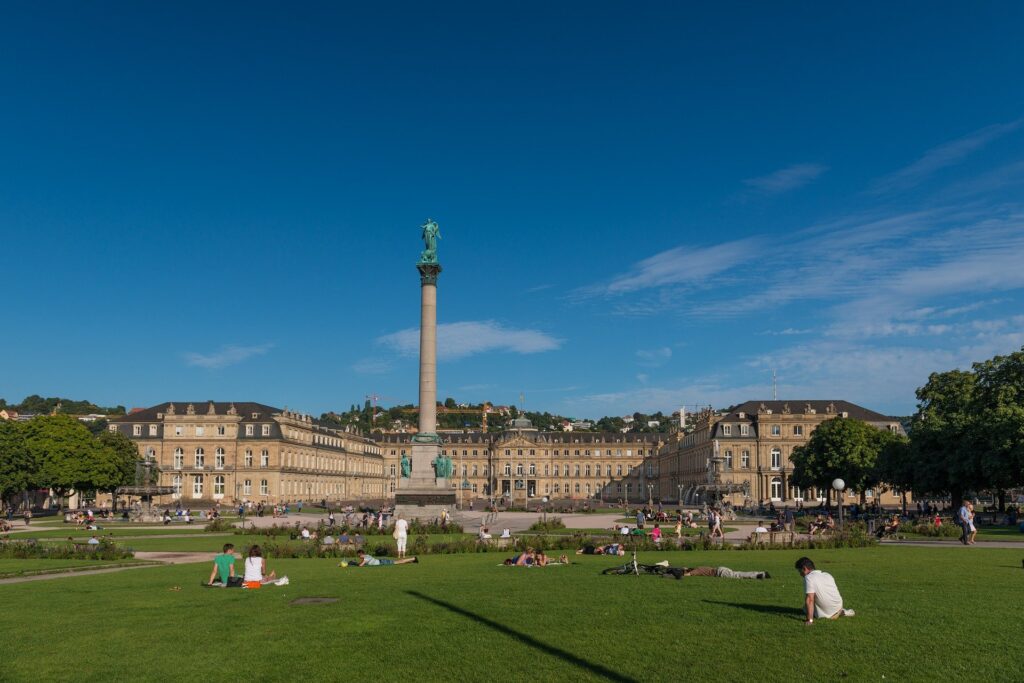Stuttgart: remaining safe at a time of fundamental changes
Stuttgart, the capital of the federal state of Baden-Württemberg in the south-west of Germany (pop. 635,000) is well known for its spirit of innovation and optimism. Home to the German automobile industry, it consistently ranks as one of Europe’s most liveable and safest cities. We’ve met with Felix Grünwald and Gregor Belgardt of the municipality’s Crime Prevention Office.
Why did the city of Stuttgart join IcARUS?
Felix Grünwald and Gregor Belgardt: Crime statistics show that Stuttgart is a very safe city. Indeed, it has consistently ranked as one of the safest large cities in Germany for quite a while now. Stuttgart is very proud of its track record in ensuring urban security and of the resulting high quality of life for its citizens. It therefore considers security and social cohesion as important fields of action. By joining IcARUS, the municipality intends to make sure that Stuttgart remains safe at a time of fundamental changes, not only in urban security but in society in general. To achieve this, international exchange and networking are more important than ever. Indeed, we can only do so by learning from other institutions and by sharing our own perspective and experience with others.
Stuttgart decided to focus on the issue of radicalisation. Why?
Processes of radicalisation are a significant danger to urban security and social cohesion. Regardless of whether people are radicalised by others or on their own, they pose a potential threat to our cities. The events of the past years revealed the massive perils caused by radicalisation processes. However, addressing radicalisation at the local level is difficult because of the widespread networks of possible offenders. By developing a local multi-stakeholder strategy to prevent radicalisation, IcARUS might provide an improved approach to de-radicalisation.
What are your expectations regarding the outcome of IcARUS?
Firstly, IcARUS will assess future challenges to urban security. While the project’s core documents already discuss current and future challenges to urban security, it might also be able to define and assess further challenges and problems. In addition, IcARUS provides an opportunity to engage in an international exchange and dialogue about the challenges that lie ahead. Its diverse consortium should prove a lively group of experts, willing to learn and inform others. The project’s aim to promote a multi-stakeholder approach, to tackle future challenges to urban security, is of high relevance to the city of Stuttgart. We think it is particularly important to create urban security tools that are based on the evaluation of past prevention programmes and that reflect current developments in science. In particular, we need such tools to prepare our urban security strategy for the future. The city of Stuttgart appreciates the project’s ambitious goal of enhancing and improving local approaches to urban security.


subscribe to be the first to receive icarus news!
Know what we've been up to and the latest on the European urban security frame.








